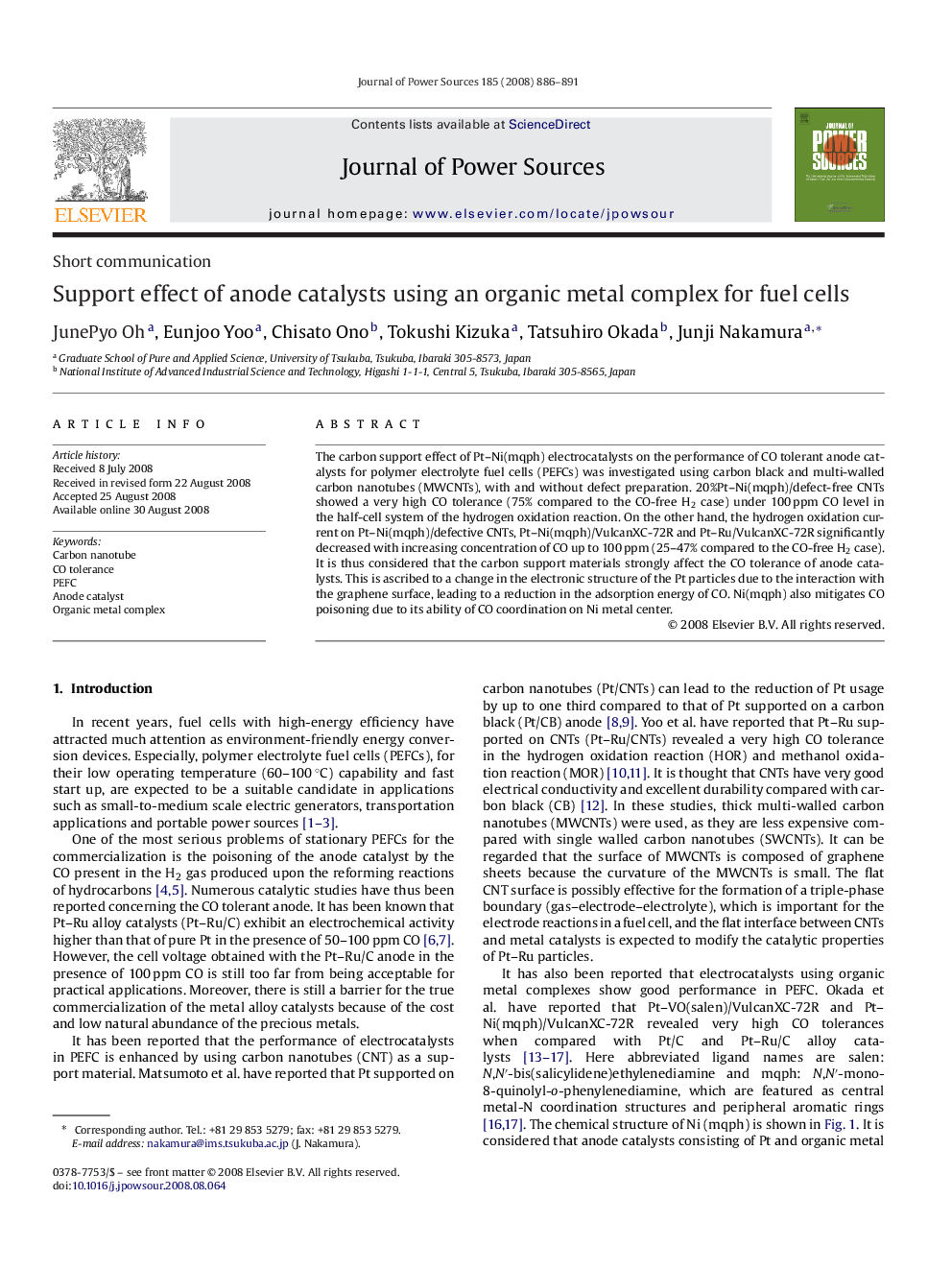| Article ID | Journal | Published Year | Pages | File Type |
|---|---|---|---|---|
| 1290197 | Journal of Power Sources | 2008 | 6 Pages |
The carbon support effect of Pt–Ni(mqph) electrocatalysts on the performance of CO tolerant anode catalysts for polymer electrolyte fuel cells (PEFCs) was investigated using carbon black and multi-walled carbon nanotubes (MWCNTs), with and without defect preparation. 20%Pt–Ni(mqph)/defect-free CNTs showed a very high CO tolerance (75% compared to the CO-free H2 case) under 100 ppm CO level in the half-cell system of the hydrogen oxidation reaction. On the other hand, the hydrogen oxidation current on Pt–Ni(mqph)/defective CNTs, Pt–Ni(mqph)/VulcanXC-72R and Pt–Ru/VulcanXC-72R significantly decreased with increasing concentration of CO up to 100 ppm (25–47% compared to the CO-free H2 case). It is thus considered that the carbon support materials strongly affect the CO tolerance of anode catalysts. This is ascribed to a change in the electronic structure of the Pt particles due to the interaction with the graphene surface, leading to a reduction in the adsorption energy of CO. Ni(mqph) also mitigates CO poisoning due to its ability of CO coordination on Ni metal center.
